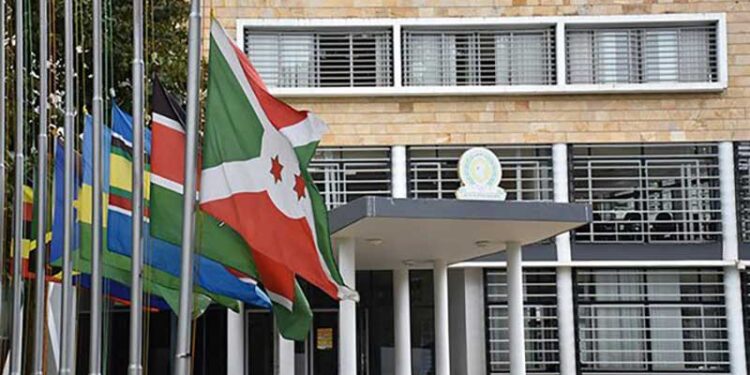A Regional Task Force (RTF) will compile a comprehensive list of all levies, fees and charges within the EAC for harmonization and removal to improve cross-border trade. The task force held its first meeting recently in Dar es Salaam and agreed to have subsequent meetings scheduled to be held regularly.
This will culminate into a database of all EAC levies, fees, and charges, bringing about predictability and eventually removing discriminatory and restrictive ones that affect intra-EAC trade.
Membership to the RTF is drawn from the EAC Member States- Burundi, Kenya, Rwanda, South Sudan, Tanzania, and Uganda. The Democratic Republic of Congo (DRC), the latest bloc’s entrant is not part of the current RTF.
The RTF is guided by the EAC Sectoral Council of Trade, Industry, Finance, and Investment (SCTIFI) and other regional laws, including the Customs Union Protocols and the Non-Tariff Barriers (NTBs) Act.
A recent study by TradeMark East Africa (TMEA) noted that the quick resolution of Non-Tariff Barriers (NTBs) has improved EAC citizens’ welfare by directly increasing trade and revenues, which led to employment creation and indirectly increased household incomes for the traders and consequently enhanced livelihoods.
The COMESA-EAC-SADC NTB online reporting mechanism classifies NTBs into eight categories. They include government participation in trade and restrictive practices tolerated by governments; customs and administrative entry procedures; technical barriers to trade and Sanitary and Phyto-Sanitary measures. Other charges include levies on imports; other procedural problems and transport, clearing and forwarding
From 2004 up to June 2022, according to TMEA, EAC had reported 256 NTBs and resolved 234 translating to a resolution rate of 91.4%. The outstanding NTBs was 22.
At the end of the 32nd EAC NTB Regional Monitoring Committee meeting held in Kigali Rwanda in June 2022, 10 NTBs were resolved and an additional one was reported. To date since 2004, 257 NTBs have been reported in EAC, 244 resolved and 13 are outstanding. This translates to an NTB resolution rate of 94.9% in EAC.
Noting the urgent need to streamline trading among the Partner States, TMEA through funding from USAID, UKAID, and the Netherlands, partnered with EAC in 2017 to offer capacity building on NTBs reporting, monitoring, and elimination mechanisms as well as the support to National NTB monitoring committees.
From the brief analysis, TMEA has contributed to the reduction of NTBs through its support to EAC including capacity-building efforts, support to National Monitoring and Regional Monitoring Committees, development, and enhancement of NTB reporting, monitoring, and elimination mechanisms as well as a review of NTBs Act.
This article was published by the editorial team at FEAFFA. For any enquiries, contact us via freightlogistics@feaffa.com, editorial@feaffa.com





